

May 22 – 28: “How accurate must thrillers be to stay plausible?”
 This week ITW Members Dave Edlund, Dana King, Sam Wiebe, Sherry Knowlton, Anna J. Stewart, Sasscer Hill, Jeff Layton, Maris A. Soule, Danny Gardner and Bob Doerr discuss telling the story right: “How accurate must thrillers be to stay plausible, and yet still include imaginative tech or devices not in existence today?”
This week ITW Members Dave Edlund, Dana King, Sam Wiebe, Sherry Knowlton, Anna J. Stewart, Sasscer Hill, Jeff Layton, Maris A. Soule, Danny Gardner and Bob Doerr discuss telling the story right: “How accurate must thrillers be to stay plausible, and yet still include imaginative tech or devices not in existence today?”
~~~~~
 Dave Edlund is a graduate of the University of Oregon with a doctoral degree in chemistry. He resides in Bend, Oregon, with his wife, son, and four dogs (Lucy Liu, Diesel, Murphy, and Tenshi). A member of the International Thriller Writers, his debut action/political-thriller Crossing Savage introduced the Peter Savage character and received the 2015 Ben Franklin Silver Medal for Popular Fiction, and was a 2015 INDIEFAB finalist for Best Suspense/Thriller. The sequel, Relentless Savage, was an iBooks pick for best new mystery & suspense, and was a Clue Award finalist and a 2016 INDIEFAB finalist. The adventures of Peter Savage continued with the publication of Deadly Savage in 2016. Soon to be released, Hunting Savage (April 2017) is praised by New York Times and International Best Selling author Steve Berry: “With a hero full of grit and determination, this action-packed, timely tale is required reading for any thriller aficionado.”
Dave Edlund is a graduate of the University of Oregon with a doctoral degree in chemistry. He resides in Bend, Oregon, with his wife, son, and four dogs (Lucy Liu, Diesel, Murphy, and Tenshi). A member of the International Thriller Writers, his debut action/political-thriller Crossing Savage introduced the Peter Savage character and received the 2015 Ben Franklin Silver Medal for Popular Fiction, and was a 2015 INDIEFAB finalist for Best Suspense/Thriller. The sequel, Relentless Savage, was an iBooks pick for best new mystery & suspense, and was a Clue Award finalist and a 2016 INDIEFAB finalist. The adventures of Peter Savage continued with the publication of Deadly Savage in 2016. Soon to be released, Hunting Savage (April 2017) is praised by New York Times and International Best Selling author Steve Berry: “With a hero full of grit and determination, this action-packed, timely tale is required reading for any thriller aficionado.”
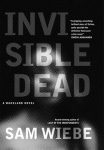 Sam Wiebe is the author of the Vancouver crime novels Last of the Independents, Invisible Dead, and Cut You Down (forthcoming, February 2018). Wiebe’s work has won the Arthur Ellis award and the Kobo Emerging Writers Prize, and he was the 2016 Vancouver Public Library Writer in Residence. His short fiction has appeared in ThugLit, Spinetingler, and subTerrain, among other places.
Sam Wiebe is the author of the Vancouver crime novels Last of the Independents, Invisible Dead, and Cut You Down (forthcoming, February 2018). Wiebe’s work has won the Arthur Ellis award and the Kobo Emerging Writers Prize, and he was the 2016 Vancouver Public Library Writer in Residence. His short fiction has appeared in ThugLit, Spinetingler, and subTerrain, among other places.
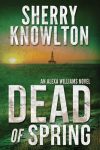 Sherry Knowlton, author of the Alexa Williams suspense novels, Dead of Autumn, Dead of Summer and Dead of Spring (release April 22, 2017) was born and raised in small-town Pennsylvania where she developed a lifelong passion for books. She was that kid who would sneak a flashlight to bed at night so she could read beneath the covers. All the local librarians knew her by name.
Sherry Knowlton, author of the Alexa Williams suspense novels, Dead of Autumn, Dead of Summer and Dead of Spring (release April 22, 2017) was born and raised in small-town Pennsylvania where she developed a lifelong passion for books. She was that kid who would sneak a flashlight to bed at night so she could read beneath the covers. All the local librarians knew her by name.
 Sasscer Hill, formerly an amateur jockey, was an owner and breeder of racehorses for decades. Her multiple award-nominated mystery and suspense thrillers are set against a background of big money, gambling, and horse racing. Her new “Fia McKee” series, to be published by St. Martins, Minotaur, won the 2015 Carrie McCray Competition for Best First Chapter of a Novel and was a runner up for the 2015 Claymore Award.
Sasscer Hill, formerly an amateur jockey, was an owner and breeder of racehorses for decades. Her multiple award-nominated mystery and suspense thrillers are set against a background of big money, gambling, and horse racing. Her new “Fia McKee” series, to be published by St. Martins, Minotaur, won the 2015 Carrie McCray Competition for Best First Chapter of a Novel and was a runner up for the 2015 Claymore Award.
 Maris Soule had 25 romances published and 2 short stories before switching to mysteries. Her books have won or placed in numerous contests, been sold in more than 25 countries, and translated into more than 18 languages. She and her husband officially live in Michigan but spend their winters in Florida. Her latest thriller, Echoes of Terror, is set in Skagway, Alaska, and features police officer Katherine Ward, who was kidnapped as a teenager and must now, seventeen years later, face her own memories as she searches for two kidnapped teenagers.
Maris Soule had 25 romances published and 2 short stories before switching to mysteries. Her books have won or placed in numerous contests, been sold in more than 25 countries, and translated into more than 18 languages. She and her husband officially live in Michigan but spend their winters in Florida. Her latest thriller, Echoes of Terror, is set in Skagway, Alaska, and features police officer Katherine Ward, who was kidnapped as a teenager and must now, seventeen years later, face her own memories as she searches for two kidnapped teenagers.
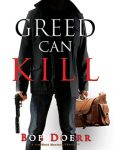 Before becoming a full time author, multi-award winning author Bob Doerr specialized in military counterintelligence and criminal investigations for 28 years. His published works include nine mystery/thrillers that have garnered a variety of awards and three fantasy novellas for middle grade readers. One of his Jim West mysteries, No One Else to Kill, was a winner in the 2013 Eric Hoffer Awards. The Military Writers Society of America selected Bob as its Author of the Year for 2013. In very short fiction, Bob came in second in the Writers Police Academy Golden Donut Award in 2012.
Before becoming a full time author, multi-award winning author Bob Doerr specialized in military counterintelligence and criminal investigations for 28 years. His published works include nine mystery/thrillers that have garnered a variety of awards and three fantasy novellas for middle grade readers. One of his Jim West mysteries, No One Else to Kill, was a winner in the 2013 Eric Hoffer Awards. The Military Writers Society of America selected Bob as its Author of the Year for 2013. In very short fiction, Bob came in second in the Writers Police Academy Golden Donut Award in 2012.
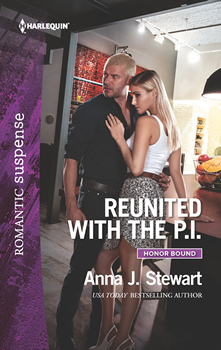 USA Today and national bestselling author Anna J Stewart can’t remember a time she didn’t have a book in her hands or a story in her head. A geek at heart, Anna writes romances featuring strong, independent heroines. RT Book reviews says Anna’s romances are “refreshingly unique, quietly humorous, and profoundly moving” and NYTimes bestselling author Brenda Novak says “The talented Anna J Stewart delivers every time!” Anna’s first foray into the romantic suspense genre “Rocks” according to NYTimes Bestselling Author Allison Brennan. Anna lives in Northern California where she deals with a serious SUPERNATURAL, STAR TREK, and SHERLOCK addiction and tolerates an overly affectionate cat named Snickers (or perhaps it’s Snickers who tolerates her). When she’s not writing, you can usually find her at fan conventions or at her local movie theater.
USA Today and national bestselling author Anna J Stewart can’t remember a time she didn’t have a book in her hands or a story in her head. A geek at heart, Anna writes romances featuring strong, independent heroines. RT Book reviews says Anna’s romances are “refreshingly unique, quietly humorous, and profoundly moving” and NYTimes bestselling author Brenda Novak says “The talented Anna J Stewart delivers every time!” Anna’s first foray into the romantic suspense genre “Rocks” according to NYTimes Bestselling Author Allison Brennan. Anna lives in Northern California where she deals with a serious SUPERNATURAL, STAR TREK, and SHERLOCK addiction and tolerates an overly affectionate cat named Snickers (or perhaps it’s Snickers who tolerates her). When she’s not writing, you can usually find her at fan conventions or at her local movie theater.
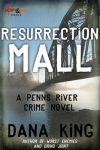 Dana King has two Shamus Award nominations, for A Small Sacrifice and The Man in the Window. His Penns River series of police procedurals includes Worst Enemies and Grind Joint, which Woody Haut, writing for the L.A. Review of Books, cited as one of the fifteen best noir reads of 2013. A short story, “Green Gables,” appeared in the anthology Blood, Guts, and Whiskey, edited by Todd Robinson. Other short fiction has appeared in Spinetingler, New Mystery Reader, A Twist of Noir, Mysterical-E, and Powder Burn Flash.
Dana King has two Shamus Award nominations, for A Small Sacrifice and The Man in the Window. His Penns River series of police procedurals includes Worst Enemies and Grind Joint, which Woody Haut, writing for the L.A. Review of Books, cited as one of the fifteen best noir reads of 2013. A short story, “Green Gables,” appeared in the anthology Blood, Guts, and Whiskey, edited by Todd Robinson. Other short fiction has appeared in Spinetingler, New Mystery Reader, A Twist of Noir, Mysterical-E, and Powder Burn Flash.
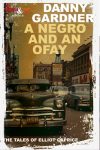 From his beginnings as a young stand-up comedian (Def Comedy Jam All-Stars vol. 12), Danny Gardner has enjoyed careers as an actor, director, and screenwriter. He is a recent Pushcart Prize nominee for his creative non-fiction piece Forever. In an Instant., published by Literary Orphans Journal. His first short fiction piece, Labor Day, appeared in Beat to a Pulp, and his flash fiction has been featured in Out of the Gutter and on Noir On The Air. He is a frequent reader at Noir at the Bar events nationwide. He blogs regularly at 7 Criminal Minds. He is a proud member of the Mystery Writers of America and the International Thriller Writers.
From his beginnings as a young stand-up comedian (Def Comedy Jam All-Stars vol. 12), Danny Gardner has enjoyed careers as an actor, director, and screenwriter. He is a recent Pushcart Prize nominee for his creative non-fiction piece Forever. In an Instant., published by Literary Orphans Journal. His first short fiction piece, Labor Day, appeared in Beat to a Pulp, and his flash fiction has been featured in Out of the Gutter and on Noir On The Air. He is a frequent reader at Noir at the Bar events nationwide. He blogs regularly at 7 Criminal Minds. He is a proud member of the Mystery Writers of America and the International Thriller Writers.
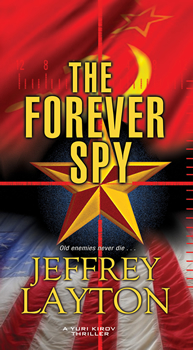 Jeffrey Layton is a professional engineer who specializes in waterfront and coastal engineering. He received his B.S. and M.S. degrees in civil engineering from the University of Washington. Jeff is a member of the American Society of Civil Engineers and the Marine Technology Society. He is also a member of the Authors Guild, Pacific Northwest Writers Association, and International Thriller Writers, Inc. Jeff uses his knowledge of diving, yachting, offshore engineering and underwater warfare in the novels he writes. He lives in the Pacific Northwest.
Jeffrey Layton is a professional engineer who specializes in waterfront and coastal engineering. He received his B.S. and M.S. degrees in civil engineering from the University of Washington. Jeff is a member of the American Society of Civil Engineers and the Marine Technology Society. He is also a member of the Authors Guild, Pacific Northwest Writers Association, and International Thriller Writers, Inc. Jeff uses his knowledge of diving, yachting, offshore engineering and underwater warfare in the novels he writes. He lives in the Pacific Northwest.
- LAST GIRL MISSING with K.L. Murphy - July 25, 2024
- CHILD OF DUST with Yigal Zur - July 25, 2024
- THE RAVENWOOD CONSPIRACY with Michael Siverling - July 19, 2024
